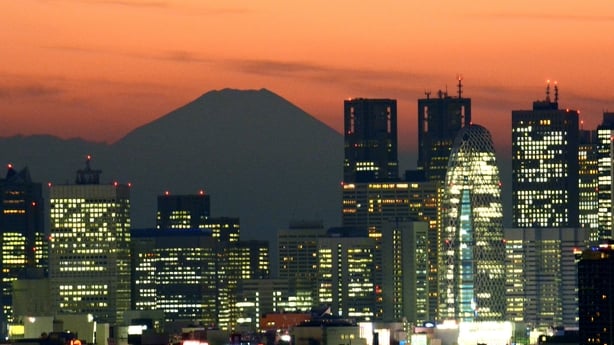Japanese Prime Minister Shinzo Abe today announced his widely expected decision to delay a scheduled sales tax increase by two and a half years.
The decision will put his plans for fiscal reforms on the back burner due to growing signs of weakness in the Japanese economy.
It could fan doubts about his plans to curb Japan's huge public debt and fund ballooning social welfare costs of a fast-ageing population.
Mindful of opposition criticism that the delay is a sign his "Abenomics" stimulus policies have failed to spur growth, Abe justified the decision, saying it was needed to forestall risks posed by external factors - notably slowing Chinese growth.
"Abenomics has been steadily producing results, but the global economic environment has changed unexpectedly quickly in the past year. The biggest risk is the slowdown in emerging economies," Abe told a news conference.
"Faced with global risks, we must fully reignite the engine of Abenomics and speed up efforts to escape deflation," he said.
It is the second time Abe has delayed an increase in the sales tax to 10% from 8%, after a rise from 5% in April 2014 tipped the economy back into recession.
Abe had repeatedly said he would raise the tax as planned unless the economy faced a shock from a financial crisis or natural disaster.
But he laid the groundwork for a delay at last week's Group of Seven summit, insisting his G7 partners shared a "strong sense of crisis" about the global economy, and he drew parallels to the 2008 world financial crisis that followed the bankruptcy of Lehman Brothers.
Abe said that while the global economy was not on the verge of another financial crisis, Japan must spearhead efforts to boost global demand by loosening fiscal policy.

"We'll deploy a comprehensive, bold economic package this autumn," he said, without indicating the scale of spending envisaged.
Many economists found Abe's comparisons to the Lehman Brothers failure far-fetched, but there is consensus that Japan's economic data has been disappointingly weak.
Manufacturing activity in May contracted by the most in more than three years. Corporate profits fell at the fastest pace in over four years in the three months from January to March, which could hurt capital expenditure plans.
Slow wage growth has also weighed on consumer spending.
Abe said today that he has not abandoned a pledge to bring the primary budget balance into surplus by the fiscal year starting April 2020, and rein in public debt which is already more than double Japan's annual economic output.
But that target had already looked elusive, even based on the government's rosy forecast of real economic growth of 2% on average in coming years.
Abe offered few clues on how Japan will make up the funding gap created by the delay in the tax hike to October 2019, saying only that he will keep reflating growth so tax revenues will continue to increase.

